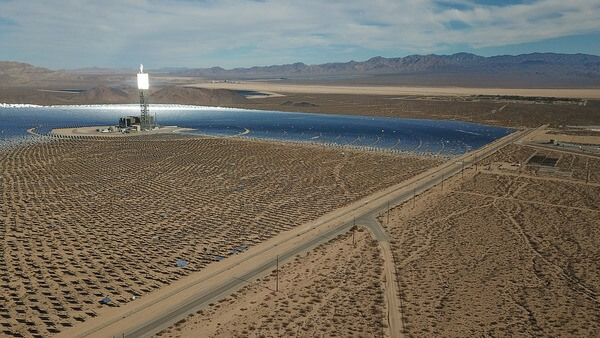News Release from windfair.net
Wind Industry Profile of
Need to speed!
Last week saw the first historic breakthrough in U.S. politics, with U.S. senators reaching a bipartisan agreement on a $550 billion infrastructure bill. On Sunday, Senate Democratic Majority Leader Chuck Schumer said the bill could be voted on "in a matter of days," as reported by BNN Bloomberg and others.
Whether the package will ultimately be approved is one question. The other is: Is it even enough? The unequivocal answer from a new report by Princeton University's Andlinger Center for Energy and the Environment and Australia's Worley Energy Company is: No!
Their report, released on Monday, shows that the pace of infrastructure investment must increase significantly to meet President Biden's goal of reducing greenhouse gas emissions to zero by 2050. "If we develop energy infrastructure the way we always have, we won’t get to net zero by 2050. We might not even get halfway. To reach our target we need to dramatically accelerate the pace and scale of how we work. Everyone involved in creating infrastructure needs to rethink their approach – from governments and investors, to construction companies and engineers," the researchers said.
While some progress has been made in recent years, it has not been enough. Governments around the world have shown their commitment by joining the Paris Agreement. China, the U.S., the U.K., Japan, France and Sweden - the list includes more than 100 countries, according to the United Nations - have now officially declared a 'net zero' goal. Some countries are also already writing legislation to achieve this.
To do so, energy systems will have to undergo a major transformation. "We’ll need vast amounts of new infrastructure [...]. And all these projects take years – or decades. Which is time we don’t have. To decarbonize the world and meet the mid-century net-zero challenge we need to reinvent the way we deliver energy infrastructure," the analysis says. In doing so, the authors focus on what is happening in the U.S., but emphasize the global nature of the critical problem.

Currently, it takes far too long for a power plant to be built. (Image: Pixabay)
And that is speed. Currently, it takes several years to even decades for a major energy project to go from concept to initial operation, depending on complexity, economics and location. Procuring land and meeting building codes - which are critical to getting the project started - can take many years. As an example, the report cites solar power plant construction: "The US would need to build two 400 MW solar PV power stations – each roughly the land area of 130 Tokyo Olympic stadiums – every week, for the next 30 years." Current construction time for a single project of that size: three years.
The world as a whole has just under 30 years to reach net zero. But they're going fast: "If you think back to thirty years ago, either in your own life, or in history, you’ll realize just how quickly time goes by. The invention of the Hubble telescope, Nelson Mandela’s release from prison, the fall of the Berlin Wall. In the grand scale of the human race, these are all very recent events. Because thirty years isn’t long. Net zero doesn’t need to happen in some distant future. It needs to happen in most of our lifetimes," analysts said.
"Energy is the fuel that the world needs to run. It is the sustenance that powers so many accomplishments and activities across the globe. And finding a way to weave all the different threads we’ve discussed together – each with a part to play in creating a world where energy is clean – is now our most pressing challenge."
- Author:
- Katrin Radtke
- Email:
- press@windfair.net
- Keywords:
- climate change, Joe Biden, USA, Worley, Princeton, analysis, report, research, project, renewables, energy system, energy transition























